Liverpool have changed dramatically over the past 10 years, with the club developing a blueprint for success under the ownership of FSG.
A decade ago, it was unthinkable to imagine Liverpool Football Club would be the best football club in the world 10 years on.
But as we head into a new decade, the sensational transformation that has taken place from top to bottom across the entire club is clear. Liverpool have become ‘the model’ for clubs aspiring to be the best. The club is now the blueprint for everyone else.
Reaching this point has not been at all straightforward or easy. It has required patience and a steely determination. Although the club has a unique appeal and a worldwide fanbase, leveraging that potential and equating it to success on the pitch requires a brilliant strategy. Especially when competing on a playing field with teams that have unlimited resources.
In recent times, Liverpool have spent significant sums to complete the jigsaw puzzle. But to not understand or write off the way that money was generated is a huge disservice to everyone connected with the transformation at the club.
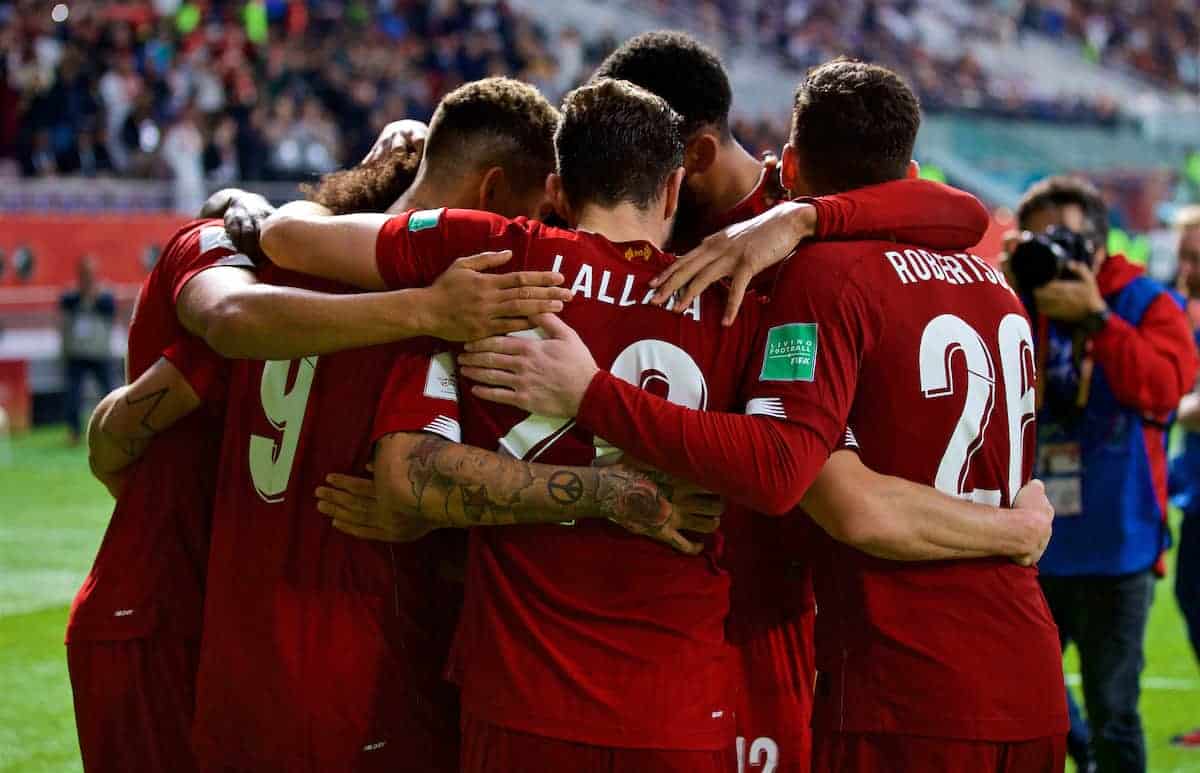
The margin for error at a club like Liverpool, who have built a world-class team using its own income is far smaller than a benefactor club where mistakes can be quickly written off.
The rebirth of Liverpool has involved a lot of smart people, with the likes of Damian Comolli, Kenny Dalglish and Brendan Rodgers all playing a role in the journey.
But the status of best in the world can be summed up by four key areas away from the pitch.
The Visionary

Although he will not want to be singled out or take the praise, Liverpool FC would not be where it is today without John W. Henry. At the time FSG acquired the club Henry made a statement that said the club needed to be ‘the smartest man in the room’—10 years on, he has delivered on that promise.
FSG had proven at the Red Sox that they know how to win, and they know how to win when the scales are tipped against them. But applying those same principles to football was far harder than baseball.
Henry has been ably assisted by Tom Werner and more notably Mike Gordon who has quietly but significantly influenced and led the strategic direction of the club from Boston. Billy Hogan was appointed early on by FSG to transform the club’s commercial operation—which he has executed brilliantly.
But it was some of those early decisions that have had a huge impact. The decision to stay at Anfield has been proven 100 percent right, with a magnificent new stand, and further development in the pipeline. In the same way Fenway Park has been carefully redeveloped during FSG’s ownership of the Red Sox, Anfield has retained its magical aura whilst being made fit for purpose in today’s game.
Although it was briefly abandoned during the tenure of Brendan Rodgers, Henry always believed in the sporting director model.

History can be a strange creature and Damian Comolli will forever be remembered for spending £35 million on Andy Carroll, but perhaps forgotten for much more significantly bringing in a certain Luis Suarez for £22 million. Ultimately, he was the wrong man but the instinct of Henry about the structure have proven to be spot on.
The great thing about FSG is they listen. They listen to football people like Brian Barwick and Johan Cruyff. They listen to the supporters. They haven’t been afraid to make mistakes or big decisions.
Ultimately, Liverpool are where they are because the Henry-led FSG vision for LFC was to grow the club commercially, resolve the stadium issue, and install a structure with world-class people empowered to make decisions.
That vision is now a reality.
The Architect

One of the best decisions FSG have made at Liverpool was appointing Michael Edwards as sporting director. Make no mistake, it was a risky move, as Edwards had been promoted through the ranks and came with a background of analytics. He wasn’t a traditional ‘football man’ in the mould of a Johan Cruyff. But it is a risk that has paid off unbelievably well.
Since his appointment Edwards has gone on to become one of, if not the best sporting director in world football (based on the size of Liverpool and its competitors). In his early tenure as part of the infamous transfer committee Coutinho arrived at Liverpool for £8.5 million. The subsequent sale and reinvestment of the fee for the same player has been Edwards’ best work so far.
But just look at the players we have signed under Edwards, and the cost. It is incredible to think we have probably the best and most frightening front three in world football at a total cost of under £100 million. And they are all aged just 27 or 28, only just entering their peak years. And we can never, ever forget Andy Robertson.
Edwards is the man that works behind the scenes to recruit the players that fit into the vision and philosophy of playing style. He is the architect.
Again, Edwards doesn’t work alone, Dave Fallows and Barry Hunter report into him and are critical to the recruitment process. But the performance of our recruitment team has been world class since the arrival of Jurgen Klopp—and that team is led by Edwards.
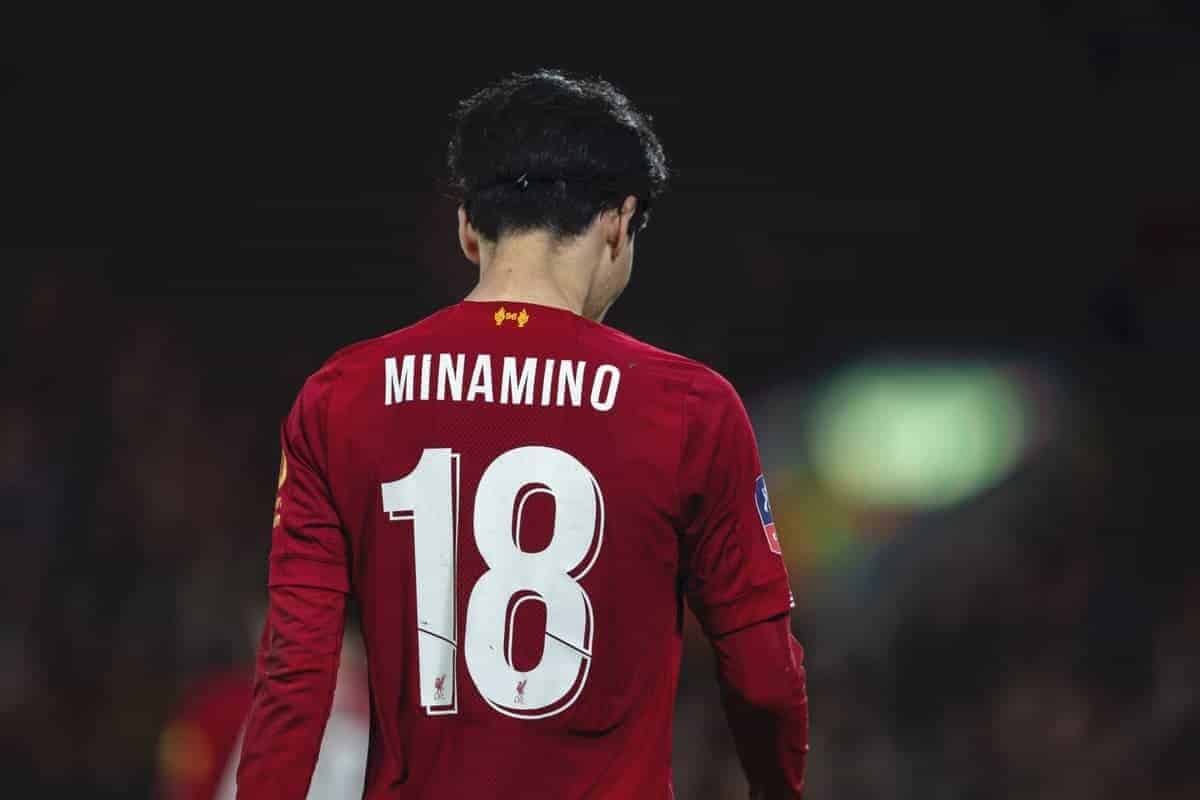
Both buying and selling the club has hardly put a foot wrong—and the intelligence of our signings such as Takumi Minamino for £7.25 million continues to astound.
We know from experience, and we have seen our rivals all suffer from bad recruitment, that the science behind it isn’t exact. But in Michael Edwards we have somebody with a formula that is setting the standard globally for world-class recruitment. He has been as important as anybody in Liverpool’s revival.
The Leader

What more can we say about Jurgen Klopp? Along with Pep Guardiola, he is by far and away the greatest coach in world football. In fact, with the resources he has had during his career versus Guardiola’s, there is a strong argument he stands alone as the best around at this moment.
Klopp’s greatest strength is his leadership. He is a world-class football coach, but that isn’t all. He is a truly inspiring leader, and he has that rare ability to take you on the journey with him. He looks at football through a supporter’s eyes, and he talks the same language.
The best leaders are the ones that listen to those around them, and it is clear to see that Klopp is happy to be influenced by the likes of Michael Edwards and Pep Lijnders.
But where Klopp thrives is in development. He makes footballers better. He is an exceptional coach, and the progress of players he has worked with is a testament to that ability. He has nurtured good footballers into great ones time and again.

And aligned to that, his character and humility keep them grounded and close to the supporters and communities they play for. Players want to run through brick walls for him, they know if you give him everything, the grin and hug makes you feel like you are the best player in the world at the end.
Liverpool have been blessed with some great managers over the years, but if Klopp finally wins the Premier League this season, he will with Shankly and Paisley become one of our greatest of all time. The parallels with Shankly, how they both saw life as well as football, and how far back they were when they took over are no coincidence.
Make no mistake, there will be a statue of Jurgen Klopp outside Anfield one day.
The Apprentice
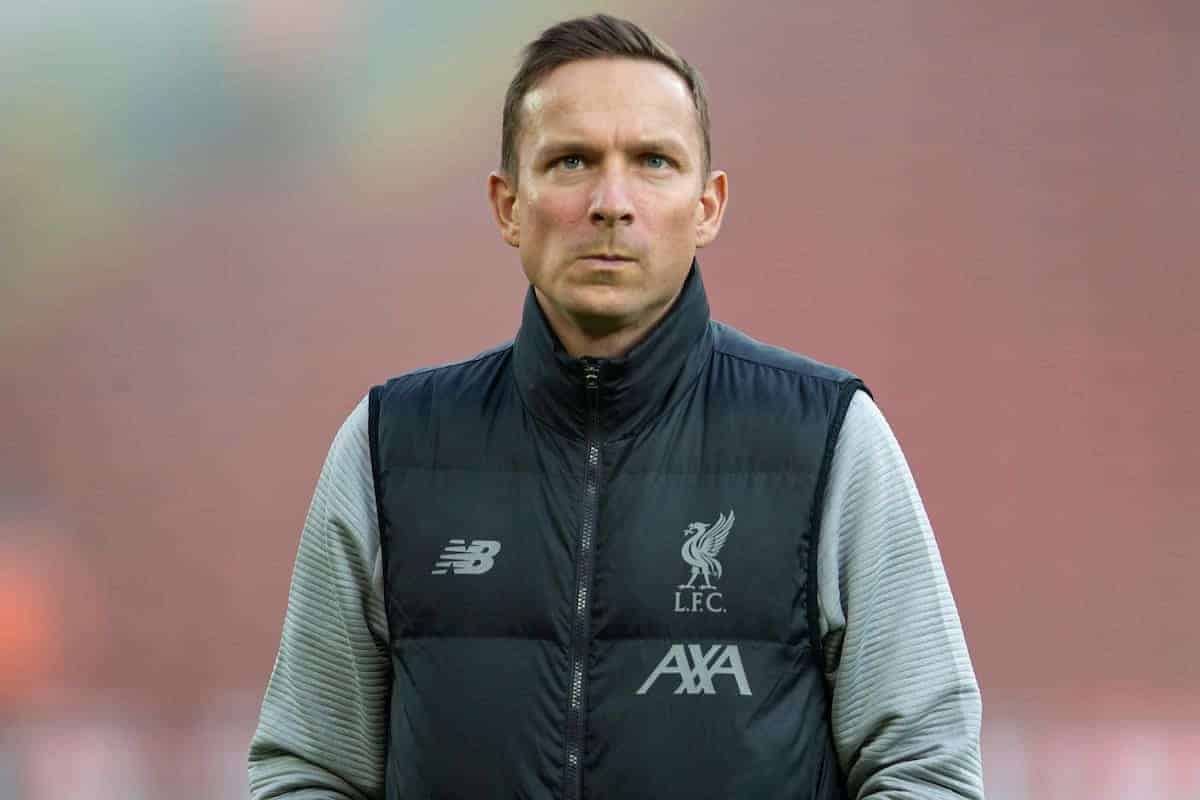
The only worry that Liverpool supporters have these days is what happens when Klopp finally decides to leave? The growing influence of Pep Lijnders at the club should be a clear sign that the pathway to his successor is already in place.
Lijnders is only 36 years old, he has already had a spell as a manager—albeit too early in his career—but his influence at Liverpool is growing all of the time.
In his early days at Liverpool, Lijnders was the link between the academy and first team, and you can see since his return he has become a key influence in the emergence of our exciting crop of youngsters into the first team.
It was Lijnders who identified and persuaded Klopp to poach his friend Vitor Matos from Porto to smooth the transition from youth to the first team once again. He has become a huge influence for Klopp in providing an insight into the academy.
As the club moves from Melwood to a brand new, state-of-the-art training centre in Kirkby the first team and academy will become even more closely aligned. We have already seen that the philosophy and style of the team is the same across age groups.
It was Pep Lijnders who said that “our identity is our intensity”—which is a perfect observation of the style being coached across the entire club.
At just 36, Lijnders is learning all the time under Klopp. In fact, Klopp has let him take the reins for the press conferences during the League Cup run.
If we have learnt anything from FSG, it is that they will want a succession plan in place for when Klopp decides to leave, an orderly handover where the philosophy and identity remain the same.
Although the heart points to Steven Gerrard as the next Liverpool boss, the head says Pep Lijnders will be the perfect candidate. He is learning from the very best—and has all the tools to take on the baton when the time comes.
In Great Hands

Whatever the future holds for Liverpool this season and beyond, it is clear the club is in great hands.
Peter Moore, the CEO, has been a revelation since his arrival. Supporter engagement continues to improve all the time with the likes of Tony Barrett (Head of Supporter Liaison) and Susan Black (Director of Comms) doing great things.
The club’s media teams are producing incredible content—especially video. Everywhere you look you see great things.
As John W. Henry once promised: we are now the smartest one in the room.

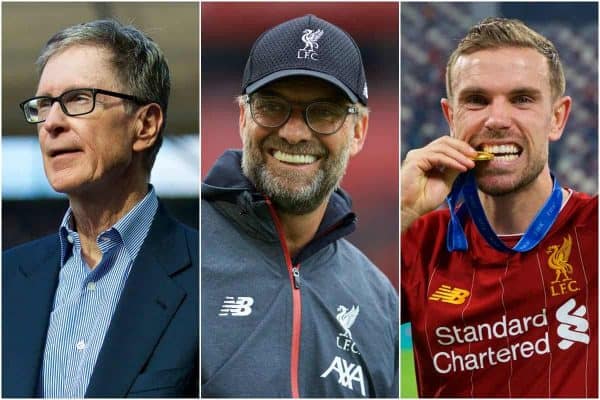

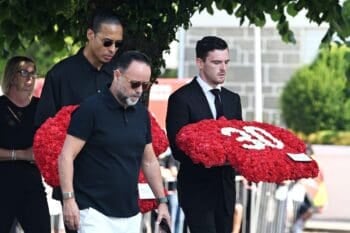
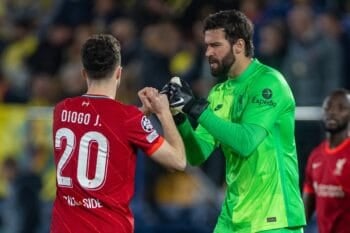
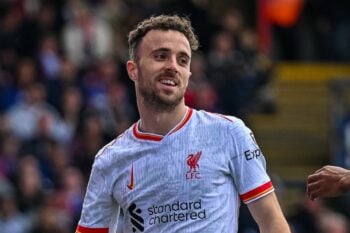
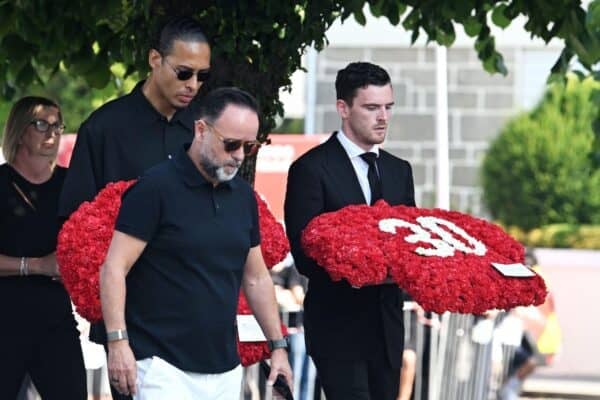
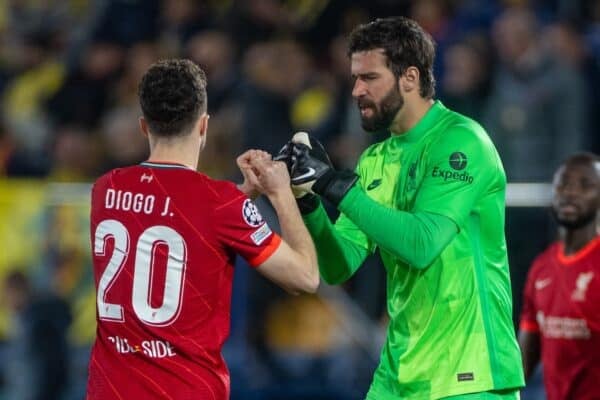
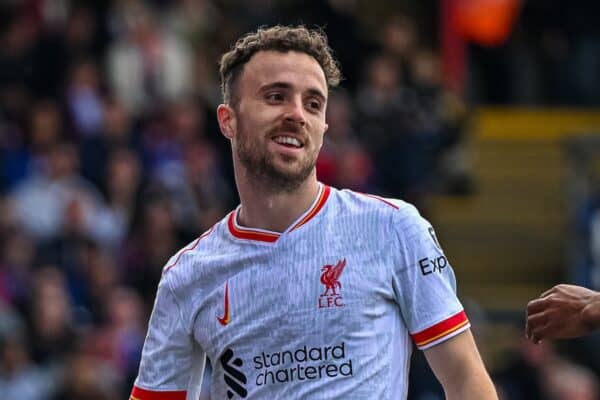
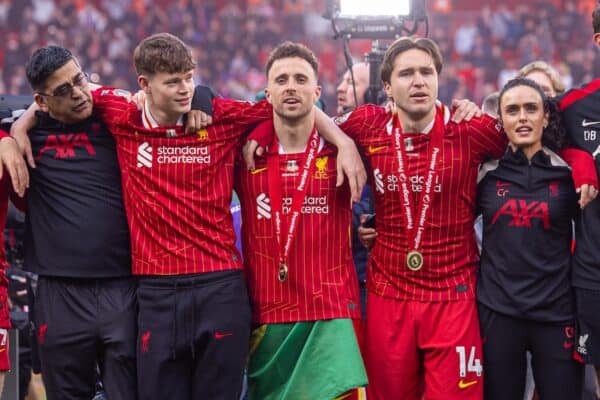
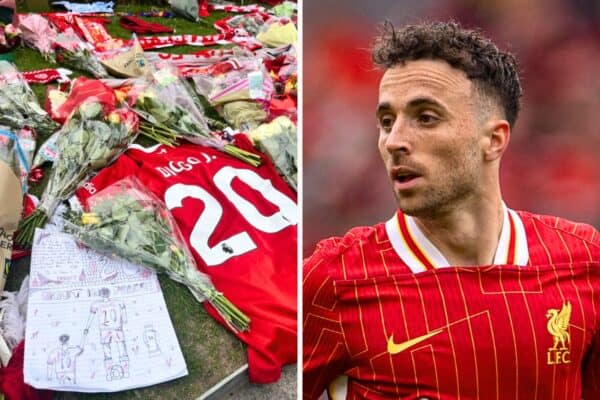
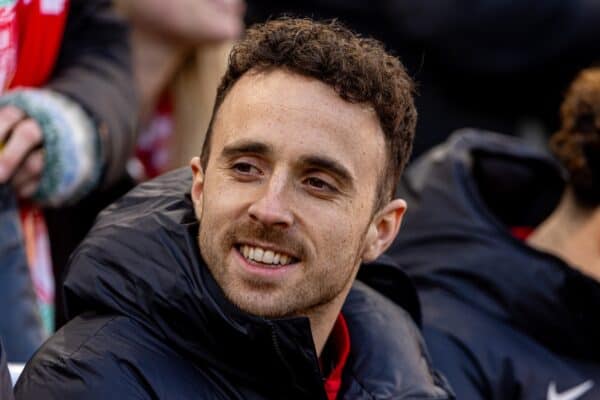
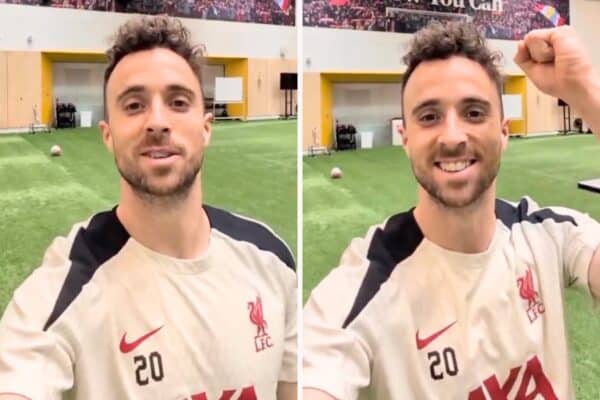
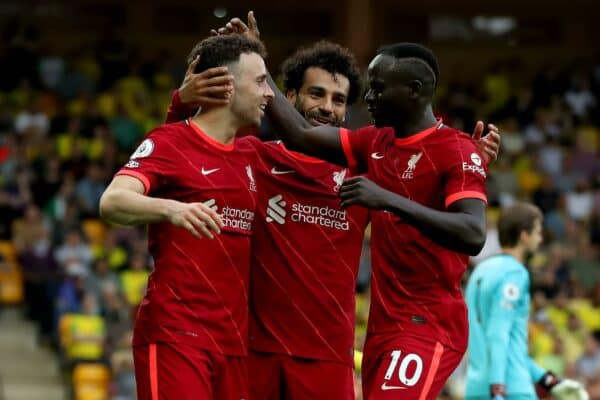



Fan Comments